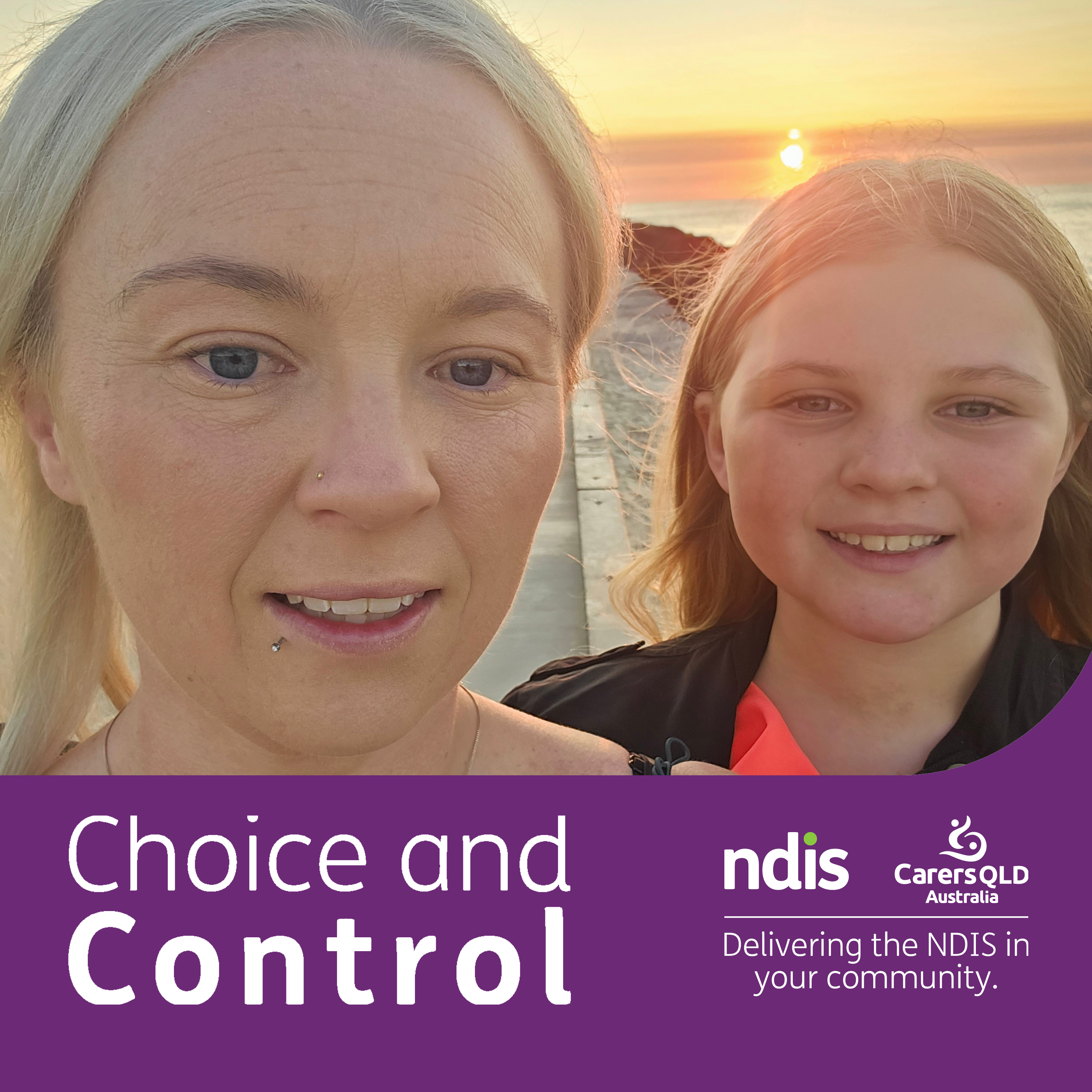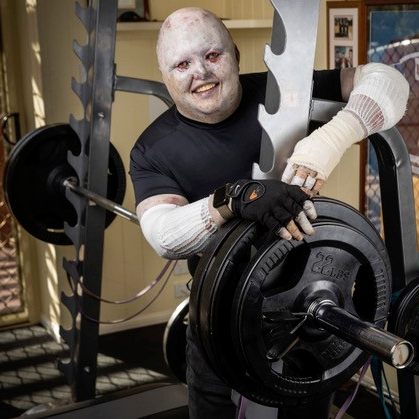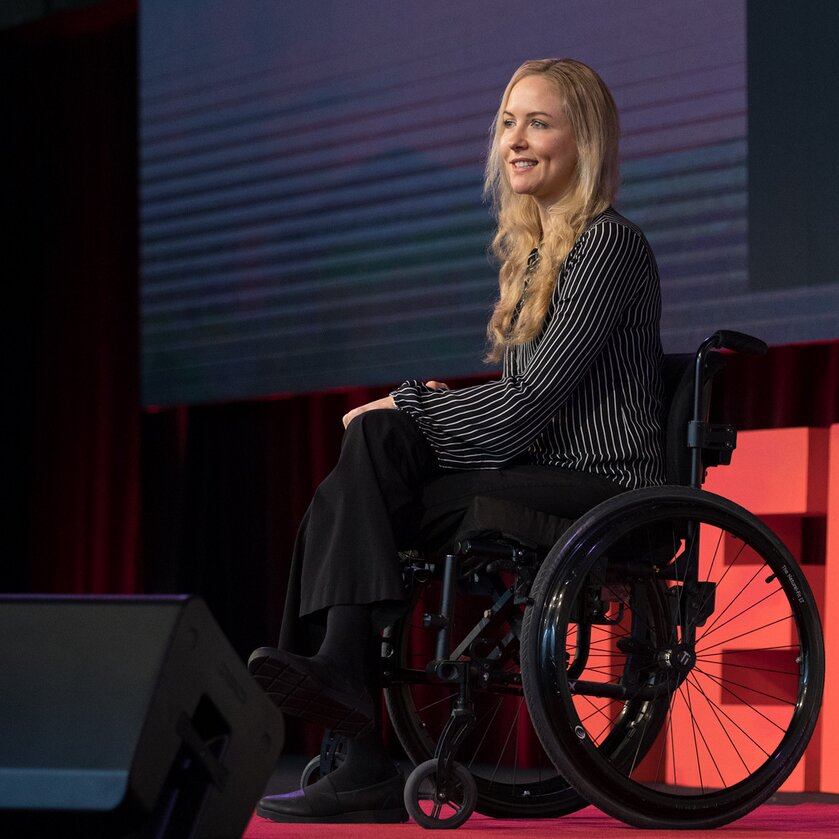Speaker 1 00:00:06 Hello, and welcome to choice and control a podcast, celebrating the contribution that people with disabilities make to our communities. In this series, we are talking all things, disability, social inclusion, and the national disability insurance game. Throughout this series, you will also be hearing some great practical advice for making the most of your NDA S plan from local people. Accessing the scheme. This podcast series is brought to you by the team at carers Queensland, NBIS local area coordination partner in the community. I'm your host Douglas Connor. Thank you for tuning in today on the show. We're actually lucky enough to chat with uncle Willie, Prince uncle Willie is a man of Kalkadoon heritage who was born on Walker Walker country on the Aboriginal mission at Sherbert in the early 1960s throughout his life. Uncle Willie has been an ever presence in the Queensland disability activism scene and has fought for decades for a fair go for Aboriginal and Torres Strait Islander people with disability.
Speaker 1 00:01:00 In this episode, Willie and I chat about his life, his journey to independence and his experiences as an Aboriginal man with a disability growing up in Brisbane. Well, uncle Willie, thank you so much for taking the time today. No worries, uncle, as I mentioned, you were born on Sherbert, which for listeners who don't know is an Aboriginal community in the South Burnett district of Southeast Queensland and Sherbert, formerly known as Barambah was a place where Aboriginal people from all over Queensland were brought after being forcibly removed from their traditional land and communities. Really. Can you tell me a little bit about those early years for you on the mission and your eventual removal from community?
Speaker 0 00:01:35 I was born in shutterbug in 1960. It was at a time when the government of the day looked out there and administrated the lives of Aboriginal people living on missions. It was an issue with me. I was in and out of hospital on several occasions, 16 times. In fact, before my first birthday and on one such occasion became the attention of the state medical doctor. I sat down at the table and deliberated my future without, without my family being present. Now one, these two men decided my future and with a strike of my pen, my life changed and I was now the property of the government of the day.
Speaker 1 00:02:21 So Willy, once the decision had been made, then for you to be removed from your community there at Sherbert, where are you taking to next?
Speaker 0 00:02:28 I was then transferred to the world children's hospital for further assessment and liberation or arm consultation as to why I was still getting sick. And, um, I stayed there for awhile. I was saying to, by a visiting specialist, uh, from England, I'd like a trophy on his, on his belt, on his wall type of thing, you know, um, to, to actually sit down and try to figure out what was wrong with this port Davey. And really, do you remember much of what life was like for you there? And the time spent there at the children's hospital, I've got a file that I managed to attain and the file had information about me from the Mamet I was taken from Sherborne. I had to get permission to guide from one place to another Wilford. Prince has permission to travel to here for his appointment and must be met at the other end and escorted back and forth.
Speaker 0 00:03:28 Even when I was a child, you know, there was an government official, you know, with me all the time. And once you'd receive treatment, then in the hospital, uncle, Willie, what was the next step for you? Is there talk of a potential return to share for you? It's still in the hands of the government of the day. And I didn't want me to go back to share bag or anything like that. Uh, they, they tried to adopt me out, reading, reading my file further. I found out that my mother actually never signed release papers. Had she signed release papers? I would have been on the open market for adoption. And I'm one of those occasions I did find out who was interested in me. I later found out it was the same doctor, English doctor that diagnosed, that were interested in me. Take me back to England.
Speaker 0 00:04:18 I had, hadn't had my mother signed them. I would have been in England to this very day. Wow. So your mom didn't sign the papers and you then weren't able to be adopted out. So what was next for you then? As I mentioned, I was, I was remarried by that state medical doctor and transferred to the Royal children's hospital. And from there I went straight to institution to exactly Hanford crippled children. And what was that experience like on uncle Willie? I can imagine going from Cherbourg into an institution for children with disabilities, must've been a big culture shock for you. Jaime at the time was a mixture of young children with disabilities and children who were not able to fit in to society. My life was controlled by, by the nuns who ran this home. And at that time, Willie, were there any other Aboriginal or Torres Strait Islander kids in the institution there with you?
Speaker 0 00:05:21 My early years there, they weren't as the only Aboriginal child in the home. So therefore, um, I didn't even know about who I was or what I was, you know, that being Aboriginal. Um, the only thing I knew that I had a disability and Willie I've heard quite interesting story about the way that you actually discovered the fact that you were from an Aboriginal background. I believe there was a number of years there in the institution that you actually weren't fully aware of your cultural background. Can you explain to me a little bit about how you came to realize, um, where you from? I was in the player playground with all the other kids, um, and we were just mocking around and stuff like that. You know, like kids do and I in the playground and one of the mentioned to me that I, you know, that I was different and I said to him, how how's that? He said you're black. And, um, didn't now what he was talking about. And I said to him, I'm not different than you. We buy some wheelchairs, everyone, all the kids here in this playground, all in wheelchairs. So what's what makes me different. It still said you're black, you're black. I didn't know what he was saying until, um, one of the, one of the nuns explained it to me. I was told by a numb, not an Aboriginal, not a member of the indigenous community that I was black and Aboriginal
Speaker 1 00:06:53 Really. I really can't imagine how difficult that must have been to not be provided with that understanding of where you'd come from and where your cultural background was and where your family is from. So then you spend a couple of years then in the institution for kids with disability after that, what, what was next for you?
Speaker 0 00:07:13 I left the children's home, um, when I was, uh, just coming onto my teams and I went to another place called the Queensland spastic welfare league, as I grew older and wiser sort of thing, I was, um, I left the Queensland domestic welfare and to my, to my life, the friends that I made while I live in at the hospital and, and at the spastic center, as it was called back then, um, I became friends with some people and some of them, we then came up with the idea of, um, how about we all band together and live together, United side, so to speak. And I said, there were four of us with disabilities, um, who, um, who rented a flat in the Southern new farm. And I stayed there for quite some time and they taught me independence, um, cooking, you know, all that type of thing, which I didn't really get much, you know, learning. I was going out
Speaker 1 00:08:21 After living, I guess, really in such controlled environments, you know, even from Sherbert being, having your life sort of administered to you by the government and then in the hospital and then in the institution and in the next care home, it must've been an incredible feeling to get out into the community. Live independently, really make some decisions for yourself.
Speaker 0 00:08:45 It gave me that sense of freedom. I could come and go. I go to room and mine, I got my own clothes. I don't have to share. And I had responsibilities. You know, I had to think for myself instead of other people like the nuns and the government, I'm thinking for me how that at first, because once I left that type of tech, uh, environment, uh, and certainly thrashed out into the outside world, I really didn't know how to survive.
Speaker 1 00:09:17 That's awesome. Uncle Willie. So you left in the institution, you were now living independently with some of your, your friends, your peers, you're enjoying all that Brisbane had to offer. How did you go about getting started on your journey towards employment?
Speaker 0 00:09:33 My first job actually was a process worker. I was working in a, in a sheltered workshop at the time I was, I thought to myself, there must be something you know, that I could do. Um, so I started looking around one of those things was selling newspapers in the Brisbane city area. I used to sell about two or 300 papers a day at 15 cents at 15 cents each. Then when I, when I got a little bit tired of, um, lost an interest in selling newspapers by then went to the C as the Commonwealth employment service in fortitude Valley. So there wasn't really much time for people with disabilities. And I was at the CES. Um, I find it up there. I said, I was wondering if you could help me. Um, I'm looking for a job, took one, look at me and said you got a disability. Um, you might be better off speaking to a disability employment officer. I went down to the disability employment officer, that person took one look at me and said, uh, I'm not quite sure we are able to help you. Um, you're an Aboriginal. And I said, yeah, that's right. Um, it might be, it might be helpful, useful if you speak to our Aboriginal employment officer and from one desk to another, like a YAG back and forth. Now, one was at nine. One was wanting to attack the responsibility.
Speaker 1 00:11:13 That's crazy. And how did you respond to that?
Speaker 0 00:11:15 I got a bit annoyed, you know, going back and forth. And I, I said to myself, I'm an Aboriginal person first and a person with a disability. Second. I pointed it out to the Aboriginal employment officer. Yeah, yeah, yeah, you're right. I think we can, I think we can help you here. And, um, and it was why he was going through the, um, the job list. He found that there was a training job, a, a training job available. It was a unemployment scheme that put Aboriginal and Torres Strait Islander people in government jobs, 12 months. Um, so I was placed, I was placed at the state library. Um, the section that I worked in at the time was called the public libraries division. And it was actually not far from where I lived at Newfoundland. I went there for my, on the first day back today to my boss. When can you start? And I said, Oh, tomorrow, next week, whenever you want me to. So that was right back in 1993. And I recently retired from work. I worked at the library for 33 years
Speaker 1 00:12:41 Among your various roles at the state library. Willie, you worked for some time in the cruel Dogen section, which is a place within the library that really celebrates Aboriginal culture and tells Aboriginal and Torres Strait Islander stories. In your time there at the library, we were able to learn a little bit about your Aboriginal health.
Speaker 0 00:12:58 I was in a position to actually find out a little bit about the culture and the people and where, like it was drum Sherbert. I actually was born in Sherbert, but, but my cultural heritage is calc sedan. <inaudible> I acknowledge myself as a Kalkadoon person, but I'm also, I was born on Walker Walker countryside. I got to cultural heritage being Kalkadoon and Walker Walker.
Speaker 1 00:13:34 The national disability insurance scheme arrived in Brisbane in 2018, and you're accepted and now receive support throughout scheme. What impact has the support you received through the NDA has made to your life? I believe that you have been able to reengage with small patients
Speaker 0 00:13:49 Before my NDI is the only support I had was a friends and family. I was mainly living independently in my own place. I'm going about my business and it didn't really occur to me that I needed help because I obviously, I used to being independent. As I grew older, my disability started to get to add a bit and the NDI came about, it gave me the opportunity to see if the NDA was for me and have it was attitude helped me in my everyday living and an employment situation. I was still at work when I got the NDAs and that helped me greatly at work, instead of relying on work colleagues to do this, do that. It gave me the opportunity to do some of my, do some of my passions that I've been long thinking about, like, like I said, 10 pin bowling. I used to go a 10 pin bowling a while back in my young, early days. And I hadn't bottled since. And getting back into bowling was really good for me because it was, I was able to get out and about and meet people as well. Yeah,
Speaker 1 00:15:13 Uncle, you were a founding member of the Aboriginal and Torres Strait Islander disability network of Queensland since 2005. The network has given Aboriginal and Torres Strait Islanders with disability in Queensland, a platform to share their stories and to connect to others. Can you tell me a little bit about how that network got started?
Speaker 0 00:15:32 The word disability in our community means many things. It doesn't particularly attain to one, one disability. You can be, you can, you can have mental illness, you can have alcoholism, you can have a disability, you can be blind. You can, you can be, you can be a person with that. I lost a limb disability in that community is many things that it's very, very hard, you know, um, when you're actually, um, trying to, to educate people about the issues that we faced, because we have many, I got, I got involved in the disability movement because of the fact is what happened to me as a child. And, um, and during the time that I was grown up in an institution and being, being looked after by the government of the day, you know, uh, being removed from family and culture, I joined the disability movement, you know, to, to understand, to learn more. And so I could tell people about my experience and endeavors and how the, how my situation back then, um, is able to influence some decision makings of the day, what digital on the task, the disability network, um, was founded by three people, purely out of the frustration that we all had. You know, we all have one thing in common that was been institutionalized where Aboriginal and that and a disability, um, and that, um, there was really no platform for people like us to speak, you know, and to be listened to.
Speaker 1 00:17:22 It's an absolutely incredible legacy for you to leave behind. Thank you so much for taking the time to chat with me today. I always love the opportunity to listen to what you have to share, and you have a real gift for storytelling, which I'm sure our audience will enjoy as well. That's all for today, but I hope to catch up with you again soon.
Speaker 0 00:17:42 No, why you take care of that?
Speaker 1 00:17:52 Thank you. Once again, for tuning into choice and control carers Queensland podcast, for more information about carers Queensland, the national disability insurance game, or the local area coordination program, please connect with us
[email protected] today. You or you can catch up with us on Facebook at facebook.com/carers, Queensland indice. We hope this podcast can become a place for people with disability to share their experiences and their stories. So if you have a story that you think we should know about, please contact us by the carers cranes and inquiries line at one 300 triple nine, six three, six, or via
[email protected] until next time. Thanks for listening.


